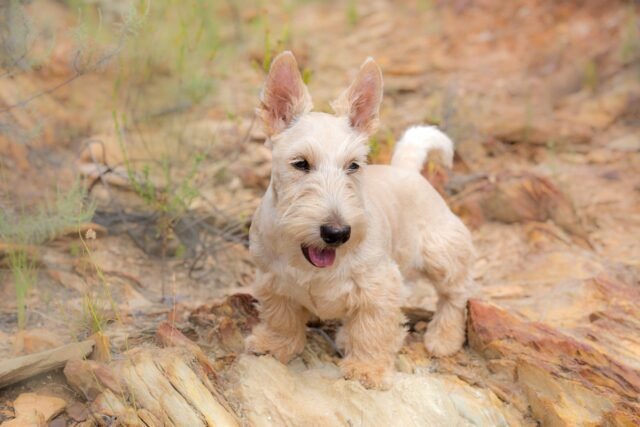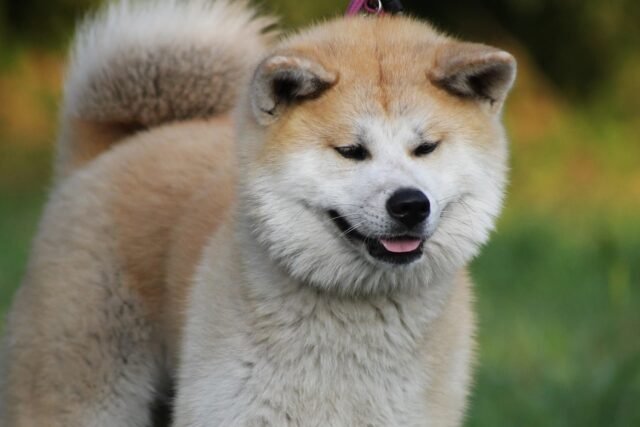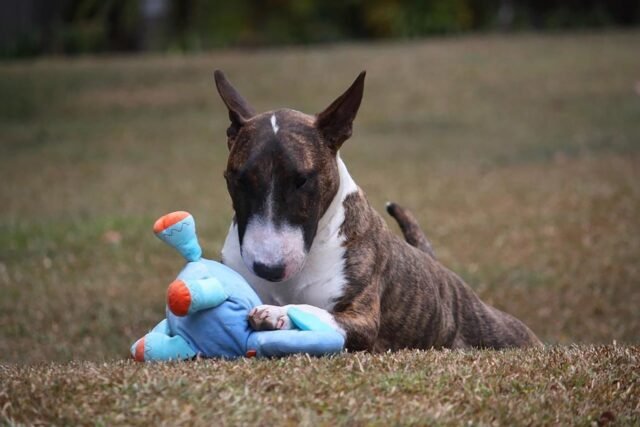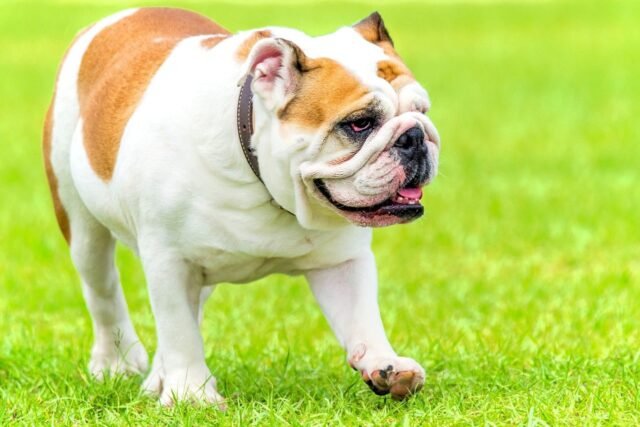Dogs are celebrated for their loyalty, companionship, and intelligence, but some breeds are known for their particularly stubborn traits. This stubbornness can make training more challenging and often requires extra patience, consistency, and a firm approach. Stubbornness in dogs can result from their independent nature, strong-willed personality, or specific breed characteristics that make them less inclined to follow commands. Knowing about these tendencies can help potential dog owners prepare for the unique challenges they might face. This article explores twelve breeds known for their stubbornness, explaining why each breed fits this description and what makes them particularly headstrong.
12. Afghan Hound
Afghan Hounds are known for their elegant appearance and aloof demeanor. Bred for hunting in the mountainous regions of Afghanistan, they have a strong independent streak. Their stubbornness is often linked to their intelligence and self-assured nature. Afghan Hounds can be difficult to train because they may become bored with repetitive commands. They require a patient and consistent owner who can keep training sessions engaging. Despite their stubbornness, Afghan Hounds are loyal and loving companions when managed correctly.

11. Shiba Inu
Shiba Inus are small, agile dogs with a bold and spirited personality. Originally from Japan, they were bred for hunting small game and have a strong prey drive. Their stubbornness stems from their independent and strong-willed nature. Shiba Inus can be challenging to train because they prefer to do things their way and may resist commands they find pointless. Positive reinforcement and consistency are essential for training. Despite their stubbornness, Shiba Inus are loyal and affectionate with their families.

10. Dachshund
Dachshunds, with their long bodies and short legs, are charming but known for their stubborn streak. Bred to hunt badgers, they have a strong prey drive and an independent nature. Their stubbornness often comes from their determination and fearless attitude. Dachshunds can be difficult to train due to their distractions and potential boredom with repetitive commands. Consistent, positive reinforcement and engaging training sessions can help manage their stubbornness. Dachshunds are loyal and affectionate pets, making them worth the effort.

9. Chow Chow
Chow Chows are recognized for their distinctive lion-like appearance and independent personality. Originating from China, they were used for guarding and hunting. Their stubbornness is related to their strong-willed and aloof nature. Chow Chows can be hard to train because they are not easily motivated by food or praise and may resist commands they find unnecessary. Early socialization and firm, consistent training are crucial. Despite their independence, Chow Chows are loyal and protective of their families.

8. Basenji
Basenjis are small, elegant dogs known for their independence and unique yodel-like bark. Originating from Central Africa, they were bred for hunting and have a strong prey drive. Their stubbornness comes from their high intelligence and independent nature. Basenjis can be challenging to train because they can become bored and may not respond to repetitive commands. Consistent, positive reinforcement and short, engaging training sessions can help manage their stubborn tendencies. Basenjis are loyal and affectionate pets.

7. Scottish Terrier
Scottish Terriers, or Scotties, are small but determined dogs with a strong-willed personality. Bred to hunt and dig out vermin, Scotties have a tenacious nature. Their stubbornness is often linked to their determination and fearless attitude. Scotties can be challenging to train due to their distractions and potential boredom with repetitive commands. Consistent, positive reinforcement and engaging training sessions can help manage their stubborn tendencies. Scotties are loyal and affectionate pets.

6. Jack Russell Terrier
Jack Russell Terriers are small, energetic dogs known for their intelligence and stubborn streak. Bred for hunting foxes, they have a strong prey drive and an independent nature. Their stubbornness is related to their high energy levels and determination. Jack Russells can be challenging to train because they may become easily distracted and bored with repetitive commands. Consistent, positive reinforcement and short, engaging training sessions are crucial. Jack Russells are loyal and affectionate pets.

5. Akita
Akitas are large, powerful dogs known for their independence and strong-willed nature. Originating from Japan, they were used for guarding and hunting. Their stubbornness often comes from their strong prey drive and protective instincts. Akitas can be challenging to train because they are not easily motivated by food or praise and may resist commands they find unnecessary. Early socialization and firm, consistent training are essential. Despite their independence, Akitas are loyal and protective of their families.

4. Basset Hound
Basset Hounds are known for their long ears, droopy eyes, and stubborn nature. Originally bred for hunting, they have a strong sense of smell and an independent streak. Their stubbornness often comes from their focus on following scents and determination. Basset Hounds can be difficult to train due to their distraction by interesting smells and potential disinterest in repetitive commands. Consistent, positive reinforcement and engaging training sessions are key. Basset Hounds are loyal and affectionate pets.

3. Beagle
Beagles are small, friendly dogs known for their keen sense of smell and stubborn nature. Bred for hunting, they have a strong prey drive and an independent streak. Their stubbornness comes from their determination and focus on scents. Beagles can be challenging to train due to their distractions and disinterest in repetitive commands. Consistent, positive reinforcement and engaging training sessions can help manage their stubbornness. Beagles are loyal and affectionate pets.

2. Bull Terrier
Bull Terriers are known for their distinctive egg-shaped head and strong-willed personality. Bred for bull-baiting and later as companion dogs, they have a tenacious nature. Their stubbornness stems from their determination and fearless attitude. Bull Terriers can be difficult to train because they may become distracted and bored with repetitive commands. Consistent, positive reinforcement and engaging training sessions are essential. Bull Terriers are loyal and affectionate pets.

1. Bulldog
Bulldogs are recognized for their wrinkled faces and strong-willed personality. Originally bred for bull-baiting, they possess a determined nature. Their stubbornness comes from their determination and independent streak. Bulldogs can be challenging to train due to their distraction and potential boredom with repetitive commands. Consistent, positive reinforcement and short, engaging training sessions are necessary. Bulldogs are loyal and affectionate pets.

In conclusion, these twelve dog breeds are known for their stubborn tendencies, making training more demanding. Each breed has unique characteristics that contribute to its stubbornness, from strong prey drives to independent streaks. Understanding these traits and using consistent, positive reinforcement can help manage their stubbornness and ensure a harmonious relationship with your dog. Despite their challenges, these breeds are loyal and loving companions who can bring great joy to their families.




